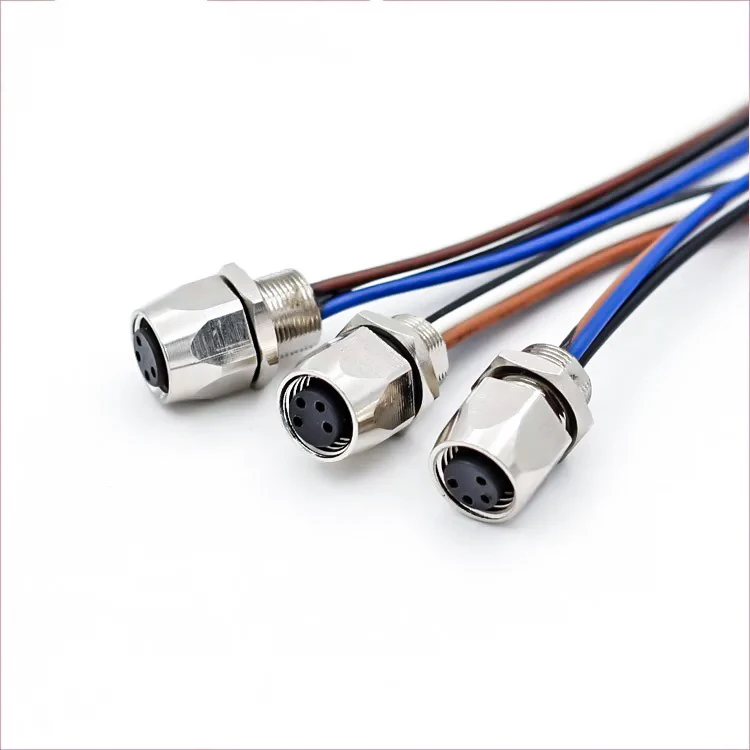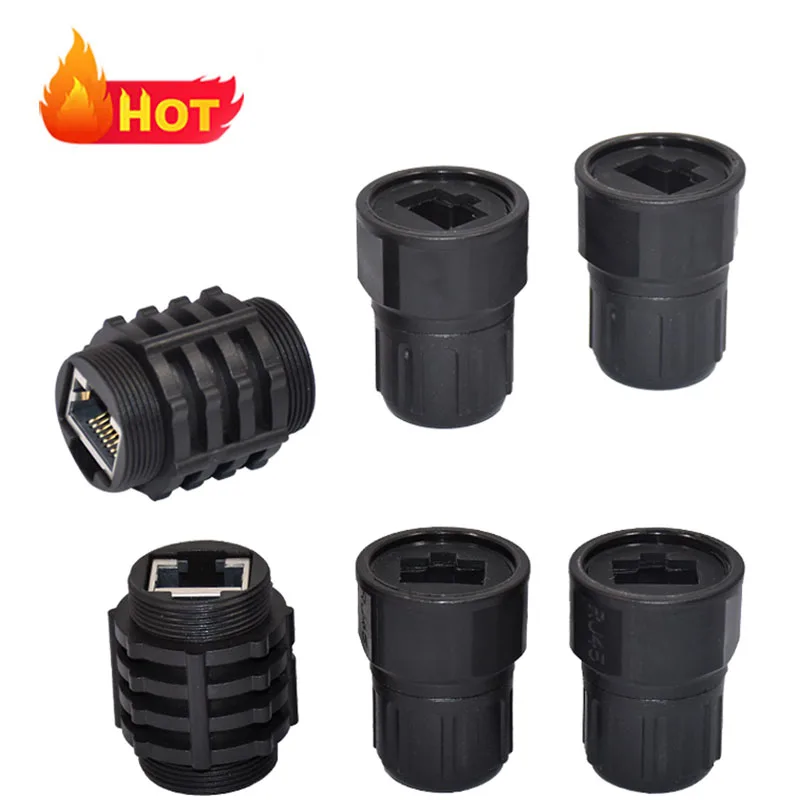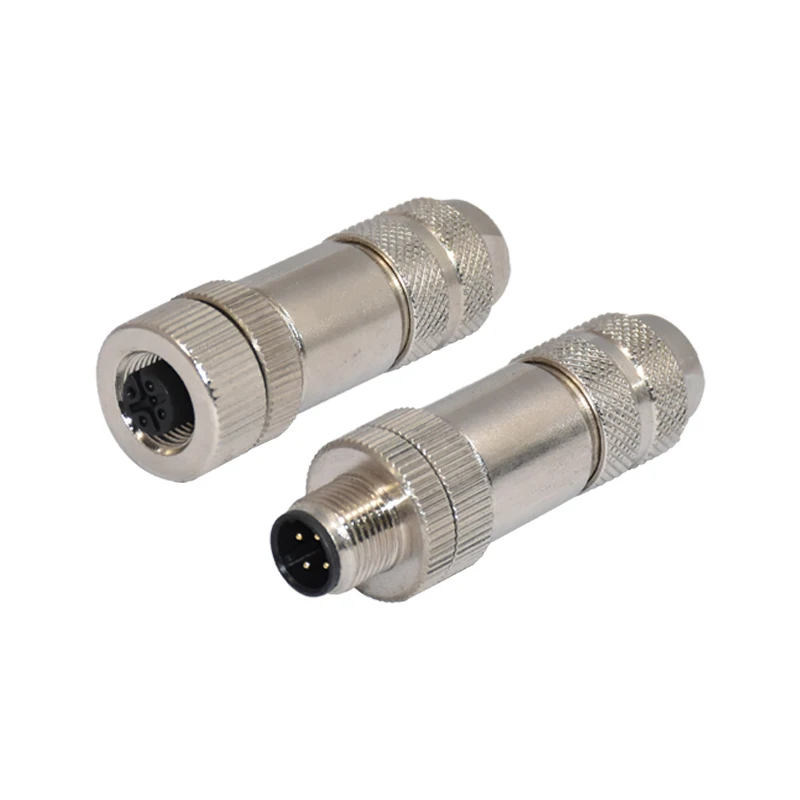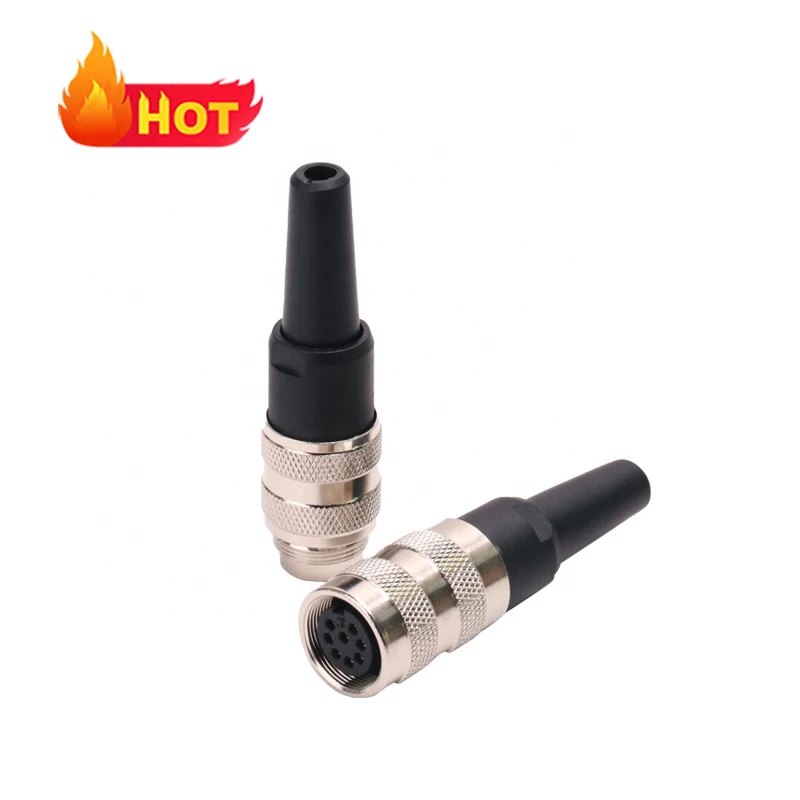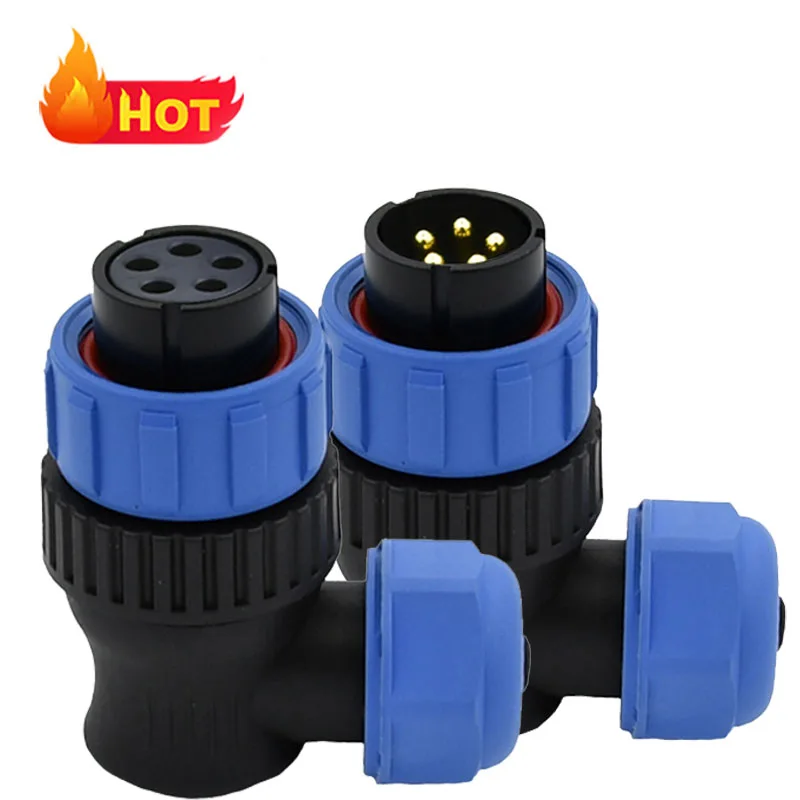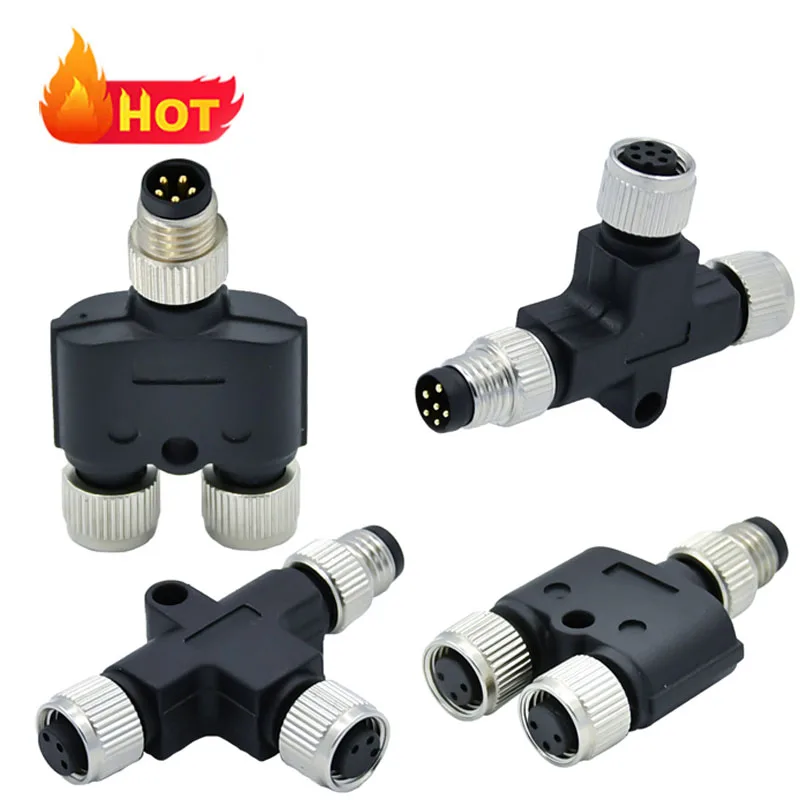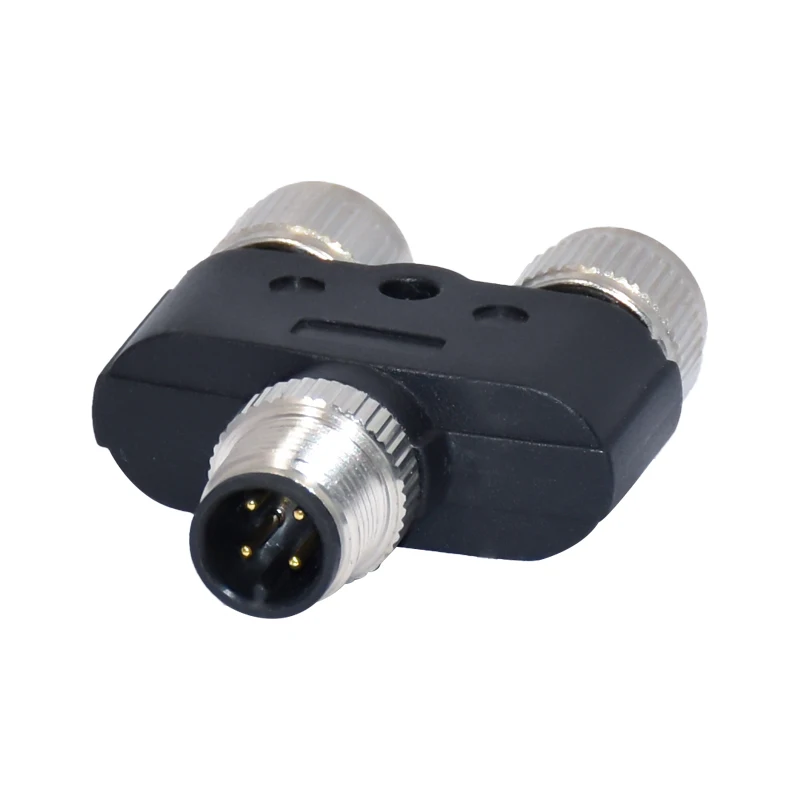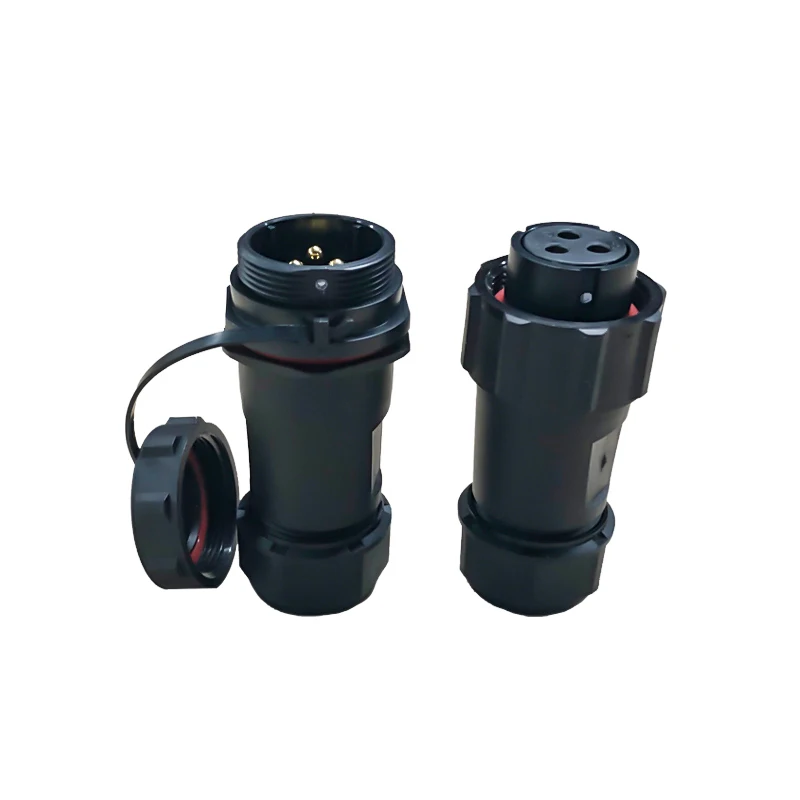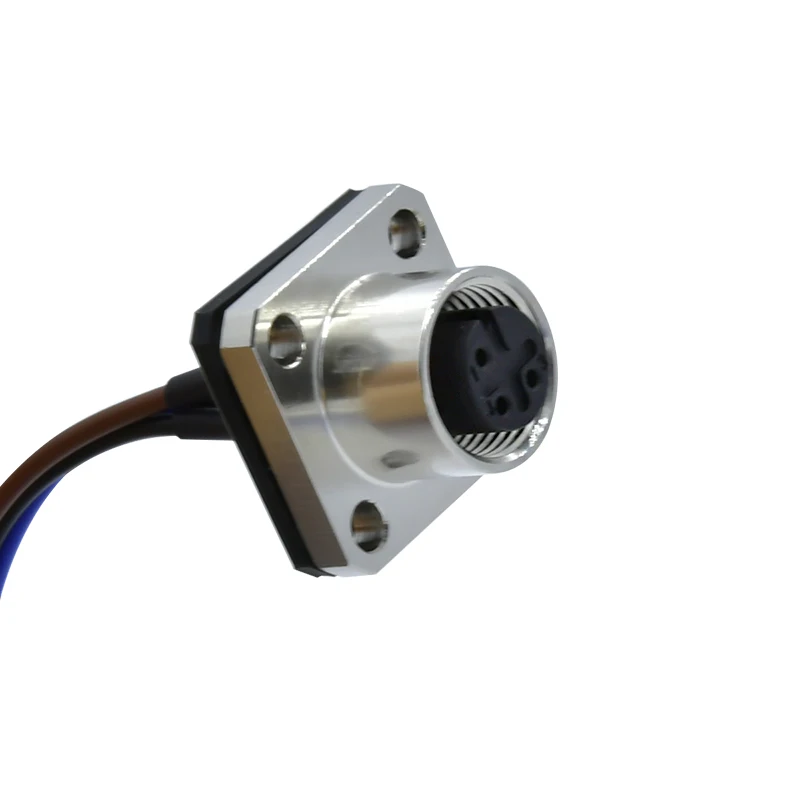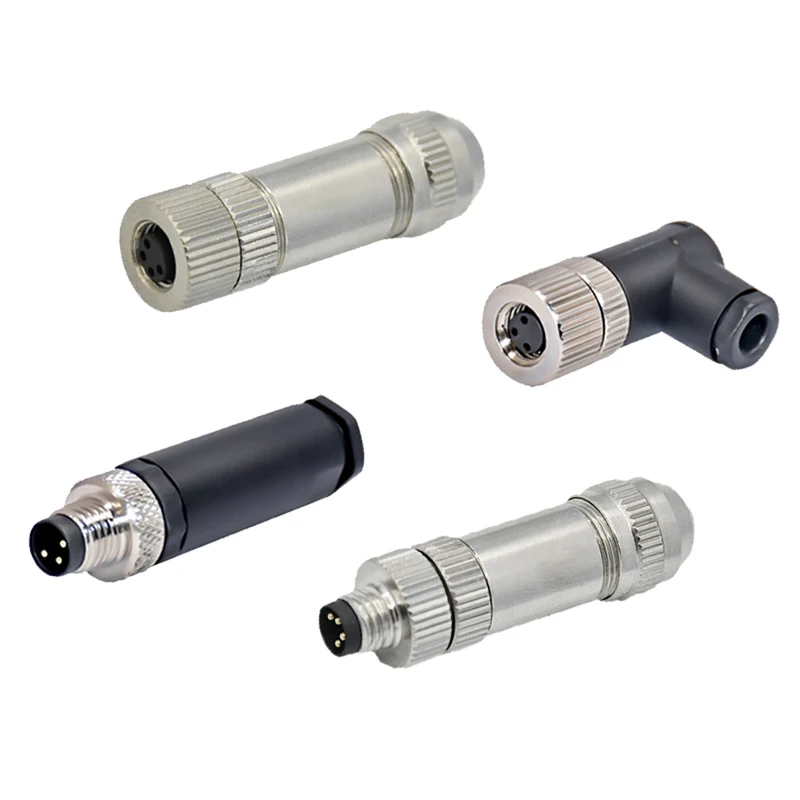การนำทางสู่โลกของการเชื่อมต่อโซลินอยด์วาล์ว
การแนะนำการเชื่อมต่อโซลินอยด์วาล์ว
ขั้วต่อวาล์วโซลินอยด์เป็นส่วนประกอบที่จำเป็นที่เชื่อมต่อวาล์วโซลินอยด์กับแหล่งจ่ายไฟและระบบควบคุม ขั้วต่อนี้จำเป็นสำหรับวาล์วที่ควบคุมด้วยไฟฟ้าในการติดตั้งทางอุตสาหกรรมและเชิงพาณิชย์เพื่อรับสัญญาณไฟฟ้าที่ทำให้วาล์วทำงานได้ ขั้วต่อเหล่านี้มีอยู่หลายประเภท เช่น แบบติดราง DIN หรือแบบติดแผง ซึ่งอาจต่อสายโดยตรงหรือเสียบเข้ากับเต้ารับที่เชื่อมต่อกันเพื่อการตัดการเชื่อมต่ออย่างรวดเร็ว
คุณสมบัติและการใช้งานที่สำคัญ
ข้อต่อวาล์วโซลินอยด์ผลิตขึ้นด้วยคุณสมบัติสำคัญหลายประการที่ทำให้เหมาะสมกับวัตถุประสงค์การใช้งาน โดยส่วนใหญ่มักมีกล่องกันน้ำและกันฝุ่นซึ่งมีความสำคัญในสภาพแวดล้อมที่รุนแรง นอกจากนี้ ข้อต่อเหล่านี้มักมีตัวปลดด่วนที่ช่วยให้ถอดและติดตั้งได้ง่ายโดยไม่ต้องใช้เครื่องมือใดๆ ซึ่งมีประโยชน์อย่างยิ่งในกรณีฉุกเฉินที่ต้องซ่อมแซมหรือเปลี่ยนวาล์วอย่างรวดเร็ว
การใช้งานของตัวเชื่อมต่อโซลินอยด์วาล์ว
การใช้ตัวเชื่อมต่อโซลินอยด์วาล์วครอบคลุมอุตสาหกรรมต่างๆ มากมาย ในการผลิตยานยนต์ ตัวเชื่อมต่อจะเชื่อมต่อวาล์วหัวฉีดเชื้อเพลิงกับหน่วยควบคุม ในระบบชลประทาน ตัวเชื่อมต่อจะเชื่อมต่อหน่วยควบคุมอิเล็กทรอนิกส์กับวาล์วจัดการน้ำ ตัวอย่างอีกประการหนึ่งคืออุตสาหกรรมแปรรูปอาหาร ซึ่งตัวเชื่อมต่อเหล่านี้ป้องกันการปนเปื้อนของของเหลวด้วยการเชื่อมต่อแบบปิดผนึก จึงรับประกันการทำงานที่ถูกสุขอนามัย
ความเข้ากันได้และการติดตั้ง
จะต้องติดตั้งขั้วต่อวาล์วโซลินอยด์อย่างถูกต้องจึงจะทำงานได้อย่างถูกต้อง ไม่ควรละเลยความเข้ากันได้ระหว่างความต้องการไฟฟ้าของวาล์วและความสามารถของขั้วต่อ ซึ่งอาจหมายความถึงการตรวจสอบค่าแรงดันไฟฟ้าและการดึงกระแสไฟฟ้าเพื่อไม่ให้เกิดความร้อนสูงเกินไปหรือความเสียหาย โดยปกติ การติดตั้งเกี่ยวข้องกับการติดขั้วต่อเข้ากับบล็อกขั้วต่อของวาล์วในขณะที่ต้องแน่ใจว่าหน้าสัมผัสทั้งหมดสะอาดและต่อเข้าด้วยกันอย่างแน่นหนาเพื่อไม่ให้เกิดความต้านทานซึ่งอาจส่งผลให้ล้มเหลวได้
ความน่าเชื่อถือและการบำรุงรักษา
การตรวจสอบและทำความสะอาดเป็นประจำเป็นมาตรการที่จำเป็นเพื่อรักษาความน่าเชื่อถือเมื่อต้อง ข้อต่อวาล์วโซลินอยด์ ประสิทธิภาพการทำงาน การนำไฟฟ้าที่ไม่ดีอันเป็นผลมาจากสิ่งสกปรกที่สะสมหรือการกัดกร่อนบนหน้าสัมผัสอาจนำไปสู่ความล้มเหลวของขั้วต่อ การทดสอบการเชื่อมต่อเป็นระยะด้วยมัลติมิเตอร์สามารถช่วยให้มั่นใจได้ว่าจะทำงานได้อย่างถูกต้อง หากมีสัญญาณของการสึกหรอหรือความเสียหายใดๆ สิ่งสำคัญคือต้องเปลี่ยนทันทีเพื่อหลีกเลี่ยงเวลาหยุดทำงาน
การเลือกขั้วต่อโซลินอยด์วาล์วที่เหมาะสม
ขั้วต่อโซลินอยด์วาล์วที่เหมาะกับคุณต้องคำนึงถึงข้อกำหนดเฉพาะของระบบของคุณ ในการตัดสินใจเลือก จำเป็นต้องคำนึงถึงปัจจัยต่างๆ เช่น สภาพแวดล้อมที่วาล์วจะทำงาน ความถี่ในการเชื่อมต่อ/ตัดการเชื่อมต่อ และคุณลักษณะทางไฟฟ้าของวาล์วและระบบควบคุม ซึ่งอาจมีลักษณะตั้งแต่ขั้วต่อแบบดัน-ดึงธรรมดาไปจนถึงแบบซับซ้อนกว่า เช่น ล็อคที่ออกแบบมาโดยเฉพาะสำหรับสภาพแวดล้อมที่มีการสั่นสะเทือนสูง
การรับประกันประสิทธิภาพของระบบ
เพื่อประสิทธิภาพที่ดีที่สุดในระบบอัตโนมัติ ส่วนประกอบต่างๆ เช่น ขั้วต่อโซลินอยด์วาล์วจะต้องมีประสิทธิภาพ ขั้วต่อคุณภาพสูงจะช่วยลดการสูญเสียสัญญาณหรือความเสี่ยงจากการขัดจังหวะ ทำให้มั่นใจได้ว่าคอยล์จะรับสัญญาณควบคุม จึงทำงานได้อย่างรวดเร็วและแม่นยำ ความน่าเชื่อถือในลักษณะนี้ส่งผลให้การทำงานราบรื่น จึงช่วยลดต้นทุนการบำรุงรักษาในระยะยาว
มองไปข้างหน้า
สอดคล้องกับความก้าวหน้าทางเทคโนโลยี การออกแบบและฟังก์ชันการทำงานของขั้วต่อโซลินอยด์วาล์วก็เปลี่ยนแปลงไปด้วยเช่นกัน วัสดุและการออกแบบได้รับการปรับปรุงอย่างต่อเนื่อง ส่งผลให้มีความทนทานมากขึ้น ใช้งานง่ายขึ้น และเข้ากันได้กับระบบควบคุมขั้นสูง ด้วยการบูรณาการของ Industry 4.0 มากขึ้น คาดว่าส่วนประกอบเหล่านี้จะฉลาดขึ้นด้วยความสามารถในการวินิจฉัยตัวเองและคุณสมบัติการสื่อสารแบบไร้สาย จึงทำให้มีตำแหน่งที่ดีขึ้นในระบบอัตโนมัติสมัยใหม่
สินค้าแนะนำ
ข่าวด่วน
-
อนาคตของเทคโนโลยีคอนเนคเตอร์
2024-01-05
-
ตัวเชื่อมต่อและอินเทอร์เน็ตของสรรพสิ่ง
2024-01-05
-
ผลกระทบของขั้วต่อต่ออุตสาหกรรมยานยนต์
2024-01-05
-
บทบาทของตัวเชื่อมต่อในศูนย์ข้อมูล
2024-01-05
-
วิวัฒนาการของเทคโนโลยีคอนเนคเตอร์
2024-01-05

 EN
EN
 AR
AR
 BG
BG
 HR
HR
 CS
CS
 DA
DA
 NL
NL
 FI
FI
 FR
FR
 DE
DE
 EL
EL
 HI
HI
 IT
IT
 JA
JA
 KO
KO
 NO
NO
 PL
PL
 PT
PT
 RO
RO
 RU
RU
 ES
ES
 SV
SV
 TL
TL
 IW
IW
 ID
ID
 SR
SR
 SK
SK
 SL
SL
 UK
UK
 VI
VI
 ET
ET
 HU
HU
 TH
TH
 TR
TR
 FA
FA
 AF
AF
 GA
GA
 UR
UR
 PA
PA
 SI
SI

